
She draws attention to the fact that the judicial system’s violation of women’s rights is one of the reasons for increasing violence against women in Turkey. She continues her struggle objectively and with perseverance, independent of the political polarisation, by preparing reports based on scientific studies and data, and within the legal domain. She spares no efforts in speaking up how the governments, through their policies, have curtailed and limited women’s rights over the years. She firmly believes that the hard-won rights claimed so far will only be safeguarded thanks to the courage and resolve of women, stressing on every occasion that she sees the hope in the women’s struggle.
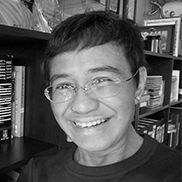
In 1987, she started working as a journalist at the state-run television; soon after, she co-founded an independent production company. She worked for CNN as an investigative reporter for 18 years, focusing on terrorism in Southeast Asia. As bureau chief, she opened CNN’s Manila bureau and later its Jakarta bureau. She came home to the Philippines in 2005, to lead its largest news group, which she did for 6 years.
In 2012, along with three women journalists, she co-founded Rappler, the top digital only news site in the country currently employing about 100 journalists. In 2015, in her interview with Rodrigo Duterte during the presidential election campaign, she made him confess his killing of three people in the 1980s in Davao while he was the mayor of the city. Together with her colleagues at Rappler, she exposed the extrajudicial killings and human rights violations in Duterte’s “war on corruption”. She came under government pressure, while investigating the “troll army” mobilised after Duterte’s election as the president in 2016.
She faced a number of lawsuits and stood trial on charges of tax evasion and foreign ownership violations in media among others, all requiring prison sentence. During these proceedings, the court issued 10 detention orders, in eight of which she was released on bail. In February 2019 she was detained on charges of “cyber libel”, which was seen by the international community as a politically-motivated act. Most recently, in August 2021, the charges brought against her due to her news coverage of Duterte was dismissed by the court. Numerous lawsuits against her are still pending. As a leading journalist of the Philippines, her struggle against disinformation, fake news, and silencing of the independent media also received international acclaim.
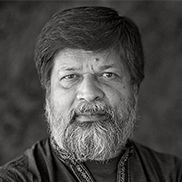
Published globally, Alam’s work has been exhibited in leading galleries like MOMA and Tate Modern. A recognised public speaker he has spoken at Oxford, Cambridge, Harvard and Stanford Universities. He is a professor at Sunderland University in the UK and RMIT in Australia. He lives and works in Bangladesh in institutions he founded, Drik Picture Library and Pathshala South Asian Media Institute.
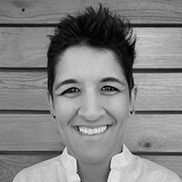
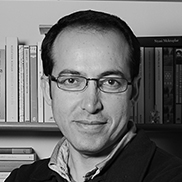
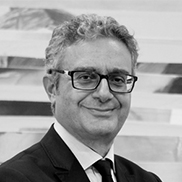
He gives lectures about human rights activism, activism and modern art, business and human rights, and international human rights regime at the master and PhD levels. His six published books are also on these topics. Apart from the aforementioned subjects, he works on confronting the past, international conflicts and restorative justice fields. He took part in Harvard University Negotiation Project and Princeton University international crimes themed projects. In 2001, he was awarded by the UN Refugee Agency (UNHCR) a Certificate of Appreciation for his contributions to the refugee rights in Turkey. He was a member of the international jury for "Human Rights in Cinema," which was held at the Istanbul International Film Festival for the first time.
He is a founding member of Helsinki Citizens' Assembly, Amnesty International-Turkey, Human Rights Foundation of Turkey, and History Foundation among several other non-governmental organizations. He is also a member of the Istanbul Bar Association.
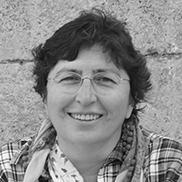
As a founding member of TİHV, she is on the organization council of the “Turkey Human Rights Movement Conference” and continues her position as a TİHV member of the board. She is the editorial director of the Toplum ve Bilim Magazine (Society and Science Magazine) since 2017.
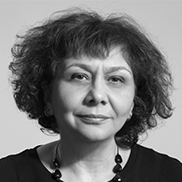
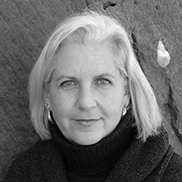
She is the award-winning author of more than twenty books on creative nonfiction including the environmental literature classic, 'Refuge -- An Unnatural History of Family and Place." Her most recent boks include "The Hour of Land -- A Personal Topography of America's National Parks" and "Erosion -- Essays of Undoing." Her writings which are hard to classify from lyrical prose to journalism to memoir, including issues of social justice have been published worldwide. Ms. Tempest Williams has received a Guggenheim Fellowship for Literature and a Lannan Literary Award in Creative Nonfiction.
She is a member of the Academy of American Arts & Letters. She lives with her husband Brooke Williams where they divide their time from Cambridge Massachusetts to the red rock desert in Castle Valley, Utah.
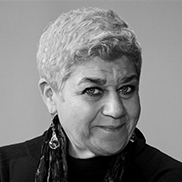
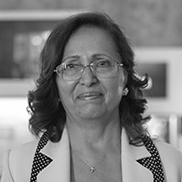
Rakel Dink became involved in human rights activism following the tragic assassination of her husband, the prominent Turkish-Armenian journalist and founder of Agos newspaper, Hrant Dink.
Born to an Armenian family in Silopi, southeastern Turkey, Rakel moved to Istanbul with tens of kids from Anatolia in order to receive education in Armenian Schools. She met with Hrant Dink at Camp Armen, where Armenian children orphans or those away from their families would spend their summers. Rakel and Hrant got married and became managers at Camp Armen in the following years until the property was seized by the state.
Following the death of Hrant Dink in January 2007, Rakel devoted her life to preserving her husband’s legacy. She established the Hrant Dink Foundation in 2007, with a mission to protect and uphold human rights in Turkey, preserve the identity and culture of minorities, address polarization, and normalize Turkish-Armenian relations. Rakel continues to be an optimist and maintains that despite the various challenges that she was forced to overcome throughout her life, she has been surrounded by love and kindness. She is hopeful for the future of Turkey and finds joy in her work and her family.
.
